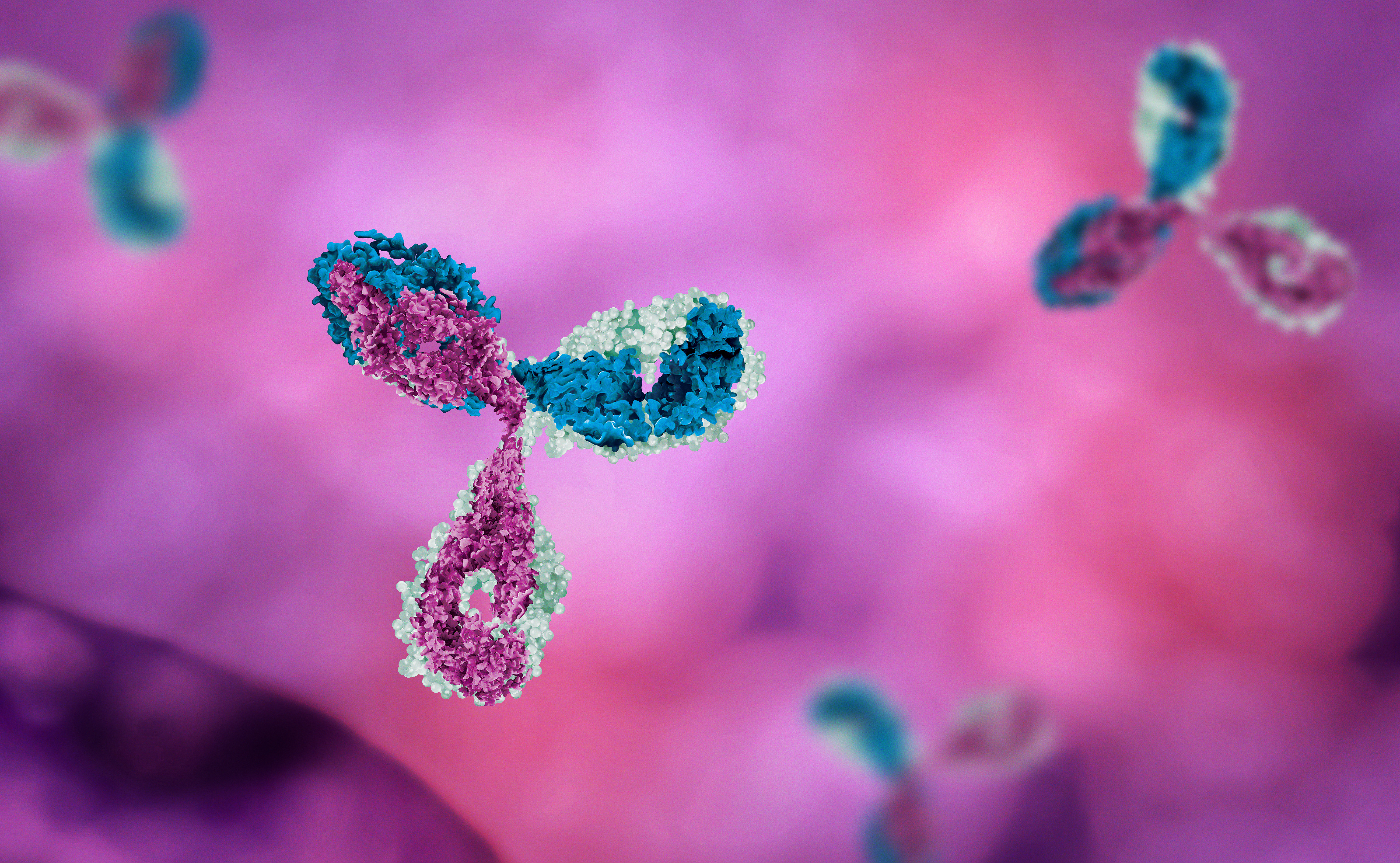
The world-renowned pioneer in immunotherapy tells Mewburn Ellis about her work with CAR-T cells, the Hedgehog pathway and her tips for thriving as a woman in science.
Forward: features are independent pieces written for Mewburn Ellis discussing and celebrating the best of innovation and exploration from the scientific and entrepreneurial worlds.
‘It’s on you. Believe in yourself and your abilities.’ That’s Maike de la Roche’s advice to women who are starting out in science.
And if de la Roche’s career is any indication, it is advice that is well worth following.
She leads a research group at the Cancer Research UK (CRUK) Cambridge Institute, University of Cambridge, where her meticulous work and her boundless energy could help solve one of the most pressing problems in immunotherapy: how to replicate in solid tumours the remarkable success of chimeric antigen receptor (CAR)-T therapy already seen in blood cancers.
Pathway to success
Immunology wasn’t her first love, though. De la Roche briefly studied fine arts in her native Germany. A little bit of biology on the side led to vet school where, as part of her degree, she conducted a biological study on large mammals, including black rhinos, in Namibia.
Her passion for veterinary medicine sparked her interest in immunology. ‘My immunology professor told me that immunology is the gateway to everything, from infectious agents, to autoimmunity, to cancer. That inspired me,’ she says.
After winning a highly competitive scholarship from the German National Merit Foundation, she went on to nurture her interest in immunology at the National Institutes of Health (NIH) in the US and at summer school at Cambridge, before deciding to do a PhD in immunology there (on a full scholarship).
On completing her postdoctoral studies at Cambridge, she was awarded a prestigious Sir Henry Dale Fellowship for postdocs who aim to become independent scientists leading their own groups and, at the same time, was made a junior group leader – a position she still holds.

Dr. Maike de la Roche (centre) and research group at the Cancer Research UK (CRUK) Cambridge Institute
Along the way, she had two children. The first was born just as she finished her PhD and the second arrived four years later.
This meant it wasn’t practical for de la Roche move to a different city or even a different country for her postdoctoral studies – something that is still expected of early-career scientists.
‘I think that’s amazing if you can do it, but I also want to say that it’s OK if you don’t do it,’ she says. ‘You can make your own destiny and still really achieve.’
The importance of mentorship
Starting a family when a career is taking off can be daunting, de la Roche admits, and a lot of women ask her when it is best to have children. Her answer is that she had children early, but lots of her peers had children later and, in the end, ‘it’s all possible’.
‘I feel for women when they think the only way they can be successful is to dedicate their whole life to science,’ she says. ‘My family is the best thing in my whole life.’
She acknowledges, though, that more needs to be done to help women achieve a work-life balance and says that mentorship is crucial. The support of her own mentors – Professor Doug Fearon and Professor Gillian Griffiths – was invaluable when she had her children. Importantly, her husband is her closest collaborator and always has her back.
One of the biggest challenges academics face is getting funding. The success rates for grant applications are low, particularly for larger amounts, and women are typically underrepresented in applications and awards, and are typically given smaller grants than men.
Good mentors will help you write your applications and school you for your interviews, says de la Roche. She also advises applying widely and not giving up. ‘If your supervisors aren’t giving you that support, then you need to reach out and get new mentors.’
A greater emphasis on mentorship might also make it easier for women to return to research careers after having children. Providing training on grant-writing, time management and leadership is also essential, she says.
The Hedgehog pathway
So, what of de la Roche’s own research? Well, it centres around something called the Hedgehog pathway. The name comes not from the animal, but from genetic experiments that left fruit flies with a bristly appearance.
The signals passed between cells as part of this pathway allow the human body to form correctly during embryonic development by ensuring the parts that should be on the right, left, front, back, top and bottom of the body all grow in the right place.
The Hedgehog pathway also plays a role in the immune response and de la Roche is examining this in detail, with the goal of improving the treatment of infections, autoimmune diseases and cancer.
Take cancer as an example. CAR-T-cell therapies, in which immune cells are genetically engineered to seek out and destroy cancer, have revolutionised the treatment of blood cancer, with patients who had run out of options and had just months – or weeks – to live going into remission, or even being cured, with a single dose.
To make them, T cells are isolated from a patient’s blood and genetically engineered to produce CARs, which are proteins on the surface of the T cells that recognise and target specific molecules on the surface of cancer cells.
Multiplied up in the lab and re-infused into the patient in their hundreds of millions, the T cells home in on and kill cancer cells bearing the specific target molecule. The ‘living drug’ then lingers in the body to stop the cancer from returning.
But solid cancers – growths in organs such as the breast or prostate – have proved much harder to crack.
There are two main reasons for this, explains de la Roche, and she is working on both.
The first is that CAR-T cells find it hard to survive and function properly in solid cancers, which are low in nutrients and oxygen. Plus, solid tumours contain lots of other cells, which inhibit the CAR-T cells.
De la Roche thinks that the answer to making CAR-T cells better killers may lie in the Hedgehog pathway. Although the signals that pass along this pathway are normally associated with driving the growth of cancer, she has shown that they also appear to have an important role in fighting cancer.
Evidence for this includes research on people with Gorlin syndrome, a rare inherited disorder in which Hedgehog signalling is turned up. When she took blood from these patients and isolated the natural killer cells (lymphocytes that destroy infected and diseased cells, including cancer cells), she found they were better than usual at killing cancer cells.
Experiments in mouse models of cancer, meanwhile, indicate that drugs that block the Hedgehog pathway stop cancer-fighting T cells.
Further study of the Hedgehog pathway in T cells revealed voltage-gated calcium channels – proteins that allow calcium ions to pass in and out of the T cells – to be key to the killing process.
De la Roche then genetically engineered T cells to carry a mutation that keeps the channel open for longer. These cells, it turned out, were ‘super-killers’.
The second reason CAR-T therapies have been less successful in treating solid cancers, says de la Roche, is that they aren’t being targeted properly at the cancer cells. To get around this, she has, together with her husband, created a novel CAR that she hopes will seek out cancers of unmet clinical need.
The hope is that T cells that carry both the new CAR and the long-opening calcium channel will be a powerful treatment for cancer.
De la Roche’s ‘leadership, innovation and entrepreneurial spirit’ led to her being named Entrepreneurial Group Leader of the Year and shortlisted for Woman Entrepreneur of the Year at the 2024 Cancer Research Horizons Innovation and Entrepreneurship Awards.
Asked which women inspire her, she says she admires the combination of a fierce intellect and amazing science. Leaders, meanwhile, should be empathic and nurturing.
‘If you are where you are because you have the sharpest elbows and a sense of entitlement, then I have little respect for you,’ she says.
‘But if you are there because you are doing phenomenal science and you can also bring a team together, and further and support every one of them, then you have my respect.
‘For example, Professor Gillian Griffiths, my former supervisor, and professors Susan Kaech and Alison Elliot, have all those qualities. They all also managed to raise wonderful children.’
What is the one piece of advice you’d give to another woman starting out in her career?
‘Believe in yourself and your abilities, and don’t compare yourself to others. It doesn’t matter if other people can stay at work for 20 hours, but you have to go at 4pm to pick up your children – just focus on your own progress and your own ideas.
‘And don’t wait for approval from your colleagues. Women often think: “Maybe someone will realise how good I am and give me praise.” But the world is a tricky place and some people are very focused on themselves and won’t necessarily look at you.
‘Do good science with enthusiasm and intelligence and, of course, pragmatism, and the rest will follow. That is what is empowering – not what other people think.’
Potential to bring significant patient benefit
Fay Allen, Associate and Patent Attorney at Mewburn Ellis, comments:
“Maike’s enthusiasm for her work is infectious, and her passionate support for her team is inspirational. She is an excellent example of a female role model, and it’s clear she cares deeply for her team members as well as her research. The research from her lab on novel approaches to cancer immunotherapy is truly exciting and has the potential to bring significant patient benefit where it is sorely needed. I think her career advice to other women is applicable beyond academia – I will definitely be applying some of her principles to my career as a patent attorney!”
Written by Fiona MacRae
Fay is a patent attorney in our life sciences team. She has an undergraduate BSc degree in Biochemistry from the University of Bristol and a PhD in Biological Sciences from the University of Cambridge. During her undergraduate degree, Fay undertook a one year industry research placement in synthetic biochemistry, developing alternative protein expression systems in bacteria. Her doctoral research focused on mitochondrial dysfunction, particularly mitochondrial metabolism during ischaemia-reperfusion injury and heart transplant. Fay joined Mewburn Ellis LLP in 2019.
Email: fay.allen@mewburn.com
Sign up to our newsletter: Forward - news, insights and features
Our people
Our IP specialists work at all stage of the IP life cycle and provide strategic advice about patent, trade mark and registered designs, as well as any IP-related disputes and legal and commercial requirements.
Our peopleContact Us
We have an easily-accessible office in central London, as well as a number of regional offices throughout the UK and an office in Munich, Germany. We’d love to hear from you, so please get in touch.
Get in touch

